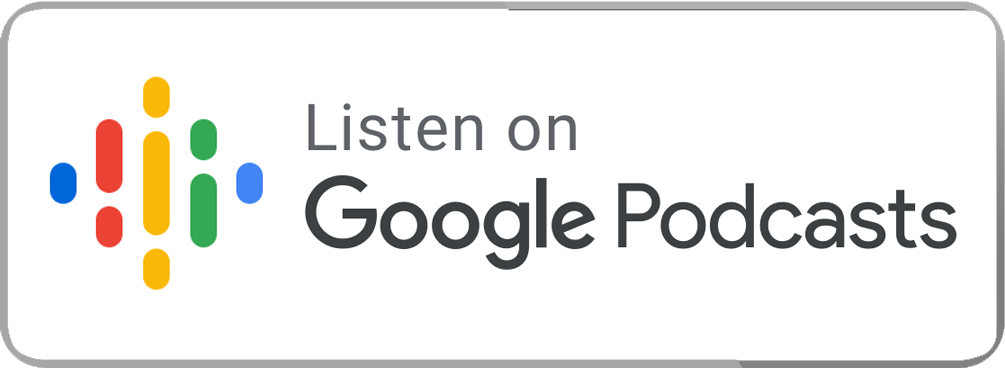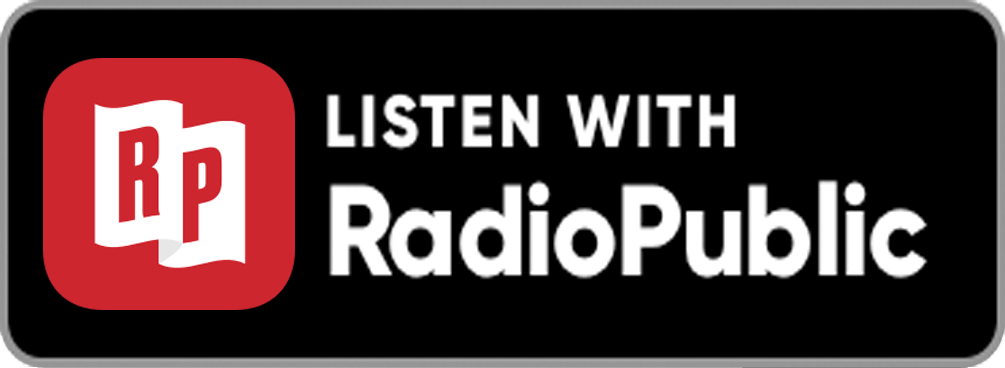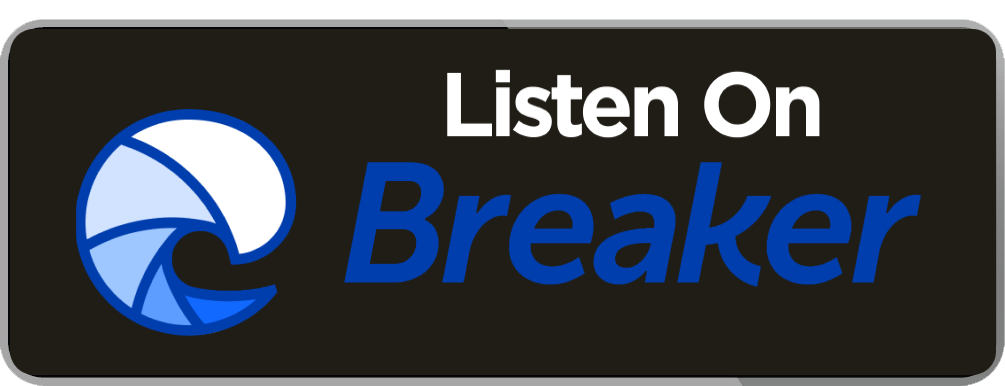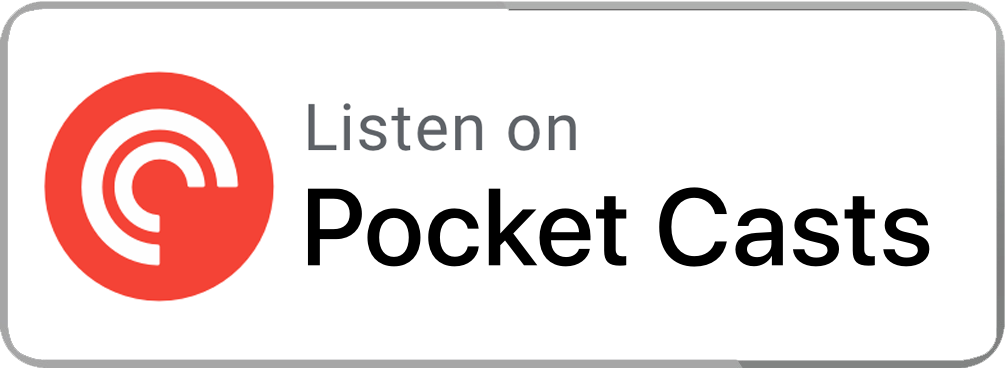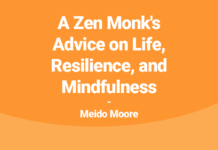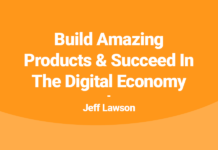Steve Woodruff is known as the King of Clarity in a world full of noise and distraction. He helps businesses craft a message so clear that they can be heard, remembered, and referred, in over 30 years of business experience. He's consulted with companies ranging from solo startups to top five Pharma companies. His new book is, Clarity Wins.
Audio Player
Transcript:
Kevin Kruse: Hello everyone. I'm Kevin Kruse. Welcome to the LEADx Leadership Show where we help you to become the boss everyone wants to work for. Now, today we're going to hear from an old friend of mine who has a formula to make you referral ready. I love that phrase, referral ready. Now, our guest today is known as the King of Clarity in a world full of noise and distraction. He helps businesses craft a message so clear that they can be heard, remembered, and referred, in over 30 years of business experience, he's consulted with companies ranging from solo startups to top five Pharma companies. He lives in Franklin, Tennessee, and is the father of, count them five boys. His new book is, Clarity Wins: Get Ahead, Get Referred. Our guest is Steve Woodruff. Steve, welcome to the show.
Steve Woodruff: Thanks Kevin for having me. It's a pleasure.
Kruse: Yeah, this is fun. We've known each other for a lot of years. Congrats on the new book. You got to feel like, I don't know, you just had a sixth kid or something like that.
Woodruff: That's exactly what it feels like. It's been a long time coming.
Kruse: Yeah, I know. Before we went to record, we're both talking about, it's like just when you think you're exhausted from writing the book, then you really get exhausted from the promotion.
Woodruff: It's a long, hard labor and the labor of love and I don't see how anybody would do this unless they're just thoroughly convinced about the message.
Kruse: That's right, and that's a good transition. I mentioned of course in your bio that your new book is Clarity Wins. So what is the big idea of the book?
Woodruff: If I was to boil it down to one thing, it's that we need to be pigeonholed and that's a radical thing. Nobody wants to be pigeonholed, but the reason I talk about that is if we're going to get our message across in people's minds, they only have a very small amount of memory space for us, so they're going to put us into one pixel of memory somewhere and they're going to attach information in their own heads about it. Well, we're either going to be stored in the right place in their minds or in the wrong place, in their minds, and clarity is about getting a message across that so distilled and memorable and portable that we position ourselves exactly right in the pigeonhole we want in the minds of our listeners so that they can not only know when they want to buy it from us, but they can refer us to others and that's what I call being referral ready.
So clarity is great in and of itself, but it's a means to an end to generating referrals, which is you and I know that's the core of great business is referrals. So we got to equip people to refer us by having a right understanding of who we are, what we do, who we do it for.
Kruse: Yeah, and I'm glad you brought that up, that this is something unique. One of the unique things about your book is this emphasis on being referral ready. I mean, that's such a great phrase because there are many books on marketing and personal branding, but ultimately, I mean the goal is, and you know you're doing it right when you're getting referred by your clients and people who are in your network, whether they're clients or not. Right?
Woodruff: Well this is the way I put it, for the last 4000 years. What has been the main way people have gotten business or spread the word? Word of mouth, referrals.
Kruse: Right.
Woodruff: And even now in the age of all kinds of sophisticated digital media, if I ask an audience, what's your best source of new business? It's referrals, and I suspect for the next 100 years it will be the same thing. So if referrals are that important, then why aren't we putting a whole lot more energy and emphasis on making ourselves referral ready? Preparing word packages that we can plant in the minds of people so that they can talk about … And I have found that I'm sure you have found. You go to a networking meeting or you're in the beginning of a sales pitch and there's all this gobbledygook and jargon and 15 bullet points. It's like there's nothing there that you can get ahold of, that's a terrible lost opportunity and I want to fix that.
Kruse: Well, let's dive in. You say there's five key elements to clarity, so tell us more about this process. These elements.
Woodruff: Well, I shamelessly stole these five elements from classic journalism, so what are the elements of a story? So the what, what exactly does your business do? And it has to be more precise than we do sales. That doesn't tell me enough, so it has to be more precise than that. The for whom, what's your target audience look like or what I call, what's your bull's eye customer? Paint me a portrait of your customer, including title, their position, their responsibilities, so I'll know exactly who your buyer is. Then there is the why. What's the business pain or the business hope that is inside somebody that makes them want to open their wallet? I got to know what's going to motivate them and you've got to know if you're going to get your message across. You've got to know the why of your buyers. The how is what I call your superpower.
What is it uniquely about Kevin Kruse that makes him the go to for this particular thing compared to X, Y, Z, A, B, C, 25 other people. You got to know what that differentiator, that uniqueness is, and the final thing is the where, some people do their business all locally. Some people do it virtually. Some do it regionally, in order to equip people to refer us. We've got to tell them exactly where we do our work, so they're referring us in the realm and in the domain and in the vertical where we are positioned. The funny thing is, Kevin, is that this is more than just making someone referral ready. This is the core foundational strategy of the company and many times I'm working with companies to define these five elements and what we're doing is we're taking a company that's been kind of wandering around and doing a lot of different things and finally getting it to a clear focus strategically, and it's on that basis that you can then have a clear message.
Kruse: Yeah. Well, I'm glad you said that because that's exactly what was going through my mind is first of all it's sort of, the classic elements used to pick that niche and I think so many entrepreneurs think their solution is for everybody, massive multi-billion dollar market place. And even if that's true, that's not how you'll start to get business.
Woodruff: Correct.
Kruse: And people are afraid to pigeonhole themselves to be so small. And I'll give you an opposite example that just happened yesterday. I'm on a site called writeraccess.com where you can hire writers and I find the quality will be a little bit better than like Elance or some of these other ones and there's a whole series of eBooks and things that we need to generate the months ahead. So I need some help. So I'm looking for like really high quality writers to help write these things and you start to search and there's, I mean hundreds and hundreds and hundreds of writers who all have the six star rating who all say, “Oh, I'm a writer of eBooks and white papers and blog articles and books and speeches.” And they list every possible thing you can think of writing.
They say they've done it and in these industries and there's 20 different industries and I'm looking and I'm like, how am I supposed to pick someone when they're all saying the same? They all say they can do it all and of course quality and all this stuff. And I tried the search bar where it was like, okay, like leadership development. Nope. No one mentioned that. Okay. How about human capital management? No, no, no. How about HR white papers? No, nobody did that. And I know they're out there, you know what, I know there's people that have worked in this space and if just one of them had thought about like, I am the best person on the planet at white papers for HR companies or for software companies or whatever, and had put that in their description, they would have been the only one I found. I'd be like, that's the person I'm using, instead I went away. I'm like, I don't have a writer because there were too many that who could do everything. That was crazy.
Woodruff: You're talking about what I call the penguin problem.
Kruse: Penguin problem.
Woodruff: Yeah. If you've seen some of these nature shows, penguins all on an ice floor and they all look the same and they all sound the same. So if you look like sound like and act like a penguin-
Kruse: For our listeners who aren't getting the video. So Steve just grabbed a stuffed penguin.
Woodruff: I have a stuffed penguin that I use as my prop.
Kruse: Yeah, this is a great.
Woodruff: You just blend in with the background. You're a commodity. You don't stand up. The other hand, and here's my stuffed pigeon, if you decide what you're best at, your pigeonhole, then people can find you. So here's an example that just occurred to me a few weeks ago. As you know in the industry you and I have both come out of, pharmaceutical training. There are tons of training companies. Many times they throw lots of bullet points against the wall and hope something sticks. And one of the major complaints I hear from commercial training organizations within Pharma companies is they all sound the same. It's all penguin problems. So I was working with entrepreneurs starting out his own consulting and he decided that he's going to specialize in fast development of workshops that have to be done real quick, high turnaround, lot of expertise, and we have worked his message and got it is so refined and so distilled.
Woodruff: It's better than some companies I've seen there have been in business for 20 years that still don't know how to specialize and he's not going after everybody's business. He's going after this one low hanging fruit niche that he uniquely can do, including even a regional aspect to it.
Kruse: And to go back to what you said before, so this I'm sure is in his messaging, but now it's also strategy. He's thinking about who am I going after? Maybe it's the local companies, maybe I need to create certain templates. Maybe I need certain support people that agree that they will work nights and weekends, whatever it is like I don't know, but it isn't a trick. It isn't a slogan and you now need to think about, how are you going to invest your time and resources to be able to deliver on that promise?
Woodruff: Correct. Those five elements are the strategy. Once you have it, then the message just flows right out of it, including the sales approach too, okay, I'm going to approach these kinds of companies. I'm going to avoid these kinds of companies because that's not the kind of ideal client. And there's a lot of dollars out there. There's tons and tons of dollars. We don't need seven billion clients. We only need a handful.
Kruse: That's right.
Woodruff: And once we can reconcile ourselves to the fact that we only need a relatively modest number of clients and that we can target them, then our efforts become so much more productive rather than just shooting stuff into the air and hoping something happens.
Kruse: Yeah, I love that. And you've got a great way with language. I mean I've been hearing it here. I was seeing it all throughout your book and one of the things you talk about is having a memory dart. It's like the elevator pitch was old school. You need to be thinking of memory dart. So tell me more about that concept.
Woodruff: Yeah, there's like two things wrong with elevator pitch, elevator and pitch. So number one, you're never really going to sell anybody an elevator and number two, no one wants to get pitched. So I hate that term and I'm sticking to replace it with what I call a memory dart. A memory dart is shaping a very small number of words and a something that will break right through the attention barrier and stick in memory, possibly using existing memory hook so that people can carry our message around without a lot of effort. So if my book editor, Josh Bernoff who's incredibly good had said to me, “Here are the 14 different things that are about me. This is my message.” [inaudible 00:12:24] that would be useless.
But what we decided is that he's the Tesla of book editors. That's the memory dart. But when I say, or when he says anybody says Tesla, that means high end, high quality, expensive, exclusive. So we have latched onto an existing piece of somebody's memory, created a word picture and planted that thought with just one little dart. That I think is the most crucial thing any business can come up with, is the memory darts that their salespeople, marketing people, anybody can use to spread the word about them.
Kruse: I really want to think hard about that concept and as you now explained it, it also makes me recall that people are taught the way to pitch VC's is to make that comparison. We are the Uber of fresh vegetable delivery or whatever it is, right?
Woodruff: Right.
Kruse: You obviously have to be new and unique, but you still anchor to something that is known. Kind of a shortcut to understanding the process.
Woodruff: Correct. Short cut's the keyword, the keyword is shortcut, two years ago, somebody wrote on my Facebook timeline on my birthday, said, “Happy birthday to the King of Clarity.” And I looked at that and I said, wow, that's got some goosebumps but it's brilliant. And I decided to embrace that as my identity and sure enough, by just summarizing everything I am and everything I do in this somewhat ego maniacal titles [inaudible 00:13:57] I have found that it has incredible memory impact because I don't have to explain. People know what the king is. There's only one king.
Kruse: That's right.
Woodruff: And so I'm trying to own the concept of clarity by embracing this title. So with some work and it is work, it's the hardest part of getting to clarity is actually distilling down from all the truth statements. Then down to the fine elements and then all the way down to the memory dart, the memory dart's tough. And it's often an analogy or a metaphor, but once you get there, it's the most powerful communications piece of all.
Kruse: That's great. So let me ask you this. In our listening audience certainly we have a lot of solo preneurs and small business owners where this absolutely applies really easily directly. What about all my listeners who they're a director of something in a big company and they're not advertising, they're thinking about a personal brand to grow their career inside the organization they're in and eventually somewhere else. What advice would you have for them?
Woodruff: Actually, the clarity principles work essentially one for one, it's the same thing. Let's find the strengths, let's find the unique messages. Let's wrap words around it. So I've done clarity work with a number of individuals for their career and just recently did a session with about 60 emerging leaders in a pharmaceutical company and this whole message of how to be seen and how to be heard and how to brand yourself effectively within the organization. So these principles are very broad. They're not just about branding a company, they're about branding a person, they're about communicating effectively. And in fact, in that company we actually did a clarity session to brand a department within the organization so that they could more effectively establish their culture on some key principles and communicate their value. And that was a huge success. They've actually been through it another time as they have grown and rebranded. So these principles can work for large brands, small brands, individuals groups because the challenge's the same, breaking through the noise and the methodology is the same. Putting it into clear words that can break through
Kruse: Now, would you go so far as to say like even the memory darts. I mean, would you advise people put those on their resume or LinkedIn profile or is it sort of like, okay, that's an exercise for people to kind of like casually know someone as, “Oh yeah, get Steve on that project because everybody knows he's the King of Clarity. Is it more like an informal thing or do you own it and embrace it on your documents?
Woodruff: Own it.
Kruse: Own it.
Woodruff: Embrace it. Yeah, because you want to reinforce, again, people don't have space in their memory to have 25 different identities of you. They're going to have one, so we may as well pick the one we want them to have. And as you know, LinkedIn is highly skimmable. You only might spend five seconds, 10 seconds looking at something on LinkedIn. So in the summary or the headline, you want as quickly as possible to get a major point across. Otherwise, you're just another penguin on LinkedIn.
Kruse: Yeah, I think that's great. And I think it's great to own it. And I liked the way, part of how you got the dart for yourself was, it was something that someone else said about you that you realized fit. And I think as we all try to come up with our own memory darts, we probably will get inspiration if not the exact words from our friends and colleagues. And so, in the LinkedIn profile, and et cetera, people don't feel comfortable saying I am the blank, people could always say, people have called me blank and I'm sure-
Woodruff: Excellent, yeah.
Kruse: … People and others can say that, if you're a little bit nervous, ease into it, put the toe in the water by letting people know what other people have referred to you as. So.
Woodruff: That's a great way to do it on LinkedIn or on a resume, is just, what has happened over the years. People have tended to call me that and then it doesn't sound quite as ego maniacal.
Kruse: Steve, this is fantastic. I know everybody's going to want to dive into your book and be like, “Okay, I need to know exactly how to do this. Because I'm excited and I want my dart next week.” So how can we find out more about you, your services, and of course your new book?
Woodruff: The new book launches Tuesday, November 27th. It's on Amazon. People can learn more about me and the book at a website that I've just launched because I've rebranded my company, so it's clarityfuel.com and that will have links to book chapters and how to purchase the book as well as more about how I go about doing clarity sessions with people and companies.
Kruse: Steve, thanks for coming on to the show.
Woodruff: Thanks Kevin for having me. It's a real pleasure and I'm glad to speak with you and your audience.
Kruse: It's been fun.
- https://clarityfuel.com/ – Website
- Preorder his book, Clarity Wins





